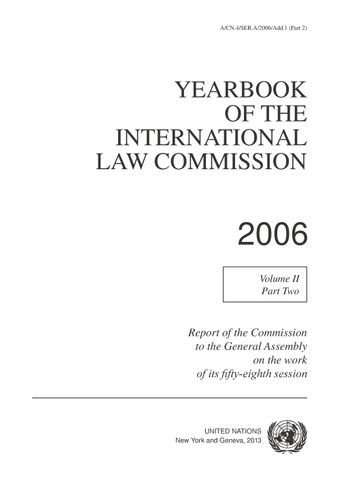Extraterritorial jurisdiction

- Author: United Nations
- Main Title: Yearbook of the International Law Commission 2006, Vol. II, Part 2 , pp 229-239
- Publication Date: July 2014
- DOI: https://doi.org/10.18356/d9716c37-en
- Language: English
Traditionally, the exercise of jurisdiction by a State was primarily limited to persons, property and acts within its territory and to relatively exceptional situations in which its nationals travelled beyond its borders. Today, the exercise of extraterritorial jurisdiction by a State with respect to persons, property or acts outside its territory has become an increasingly common phenomenon largely as a consequence of: (a) the increase in the movement of persons beyond national borders;1 (b) the growing number of multinational corporations; (c) the globalization of the world economy,2 including international banking and international stock exchanges: (d) the increase in transnational criminal activities, including drug trafficking, money laundering, securities fraud and international terrorism; (e) the increase in illegal migration:3 and (/) the increasing use of the Internet across national borders for legal or illegal purposes, such as electronic contracts, e-commerce and cybercrimes.
© United Nations
ISBN (PDF):
9789210556583
Book DOI:
https://doi.org/10.18356/25997571-en
Related Subject(s):
International Law and Justice
Sustainable Development Goals:
-
From This Site
/content/books/9789210556583s001-c020dcterms_title,dcterms_subject,pub_keyword-contentType:Journal -contentType:Contributor -contentType:Concept -contentType:Institution105
/content/books/9789210556583s001-c020
dcterms_title,dcterms_subject,pub_keyword
-contentType:Journal -contentType:Contributor -contentType:Concept -contentType:Institution
10
5

